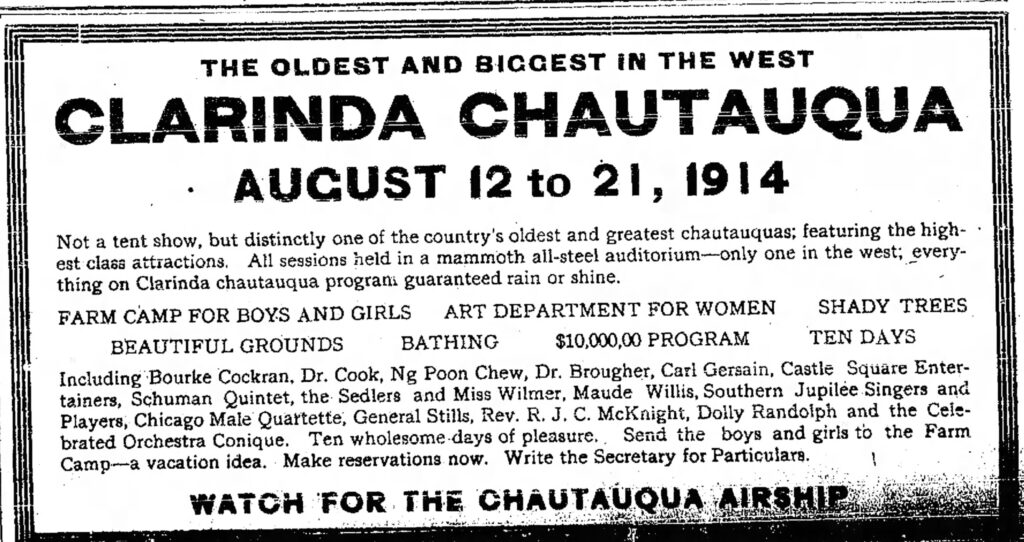The Chautauqua Institution in New York state celebrated its 150th anniversary this summer. It started in 1874 as a two-week long assembly to improve the teaching of Sunday School. Attendees camped out in tents. It was so popular that it was repeated and evolved into a nine week long summer assembly focused on the fine arts, religion, current events, world affairs, the environment and the list goes on and on. The tents were replaced by elaborate cottages on the 750 acre site. On a typical summer day, there are 7,500 people on the campus to immerse themselves in a variety of classes, lectures and other activities.
It was a distinct honor to be asked to wrap up the summer long celebration of Chautauqua during the last week of the season. My presentation was titled “Go Ye Into All the World: Stories of the Chautauqua Movement and its Legacy.” I reviewed the basic tenents of the Chautauqua movement and then identified 26 impacts that it had on the world ranging from adult education theory and practice, starting the PTA, promoting suffrage, starting summer schools, promoting Boy Scouts and Campfire girls, starting correspondence courses, starting university presses, refining the Dewey Decimal system, promoting the establishment of local libraries, establishing playgrounds for children, educating secular school teachers, promoting temperance, and establishing women’s clubs. And this was just a start.
Most people don’t equate Chautauqua with the world of agriculture but there was a strong connection between the two. Penn State took the concept of the Chautauqua reading program and created agricultural reading circles. There were even Farmer Chautauquas in numerous states. The traveling Chautauquas found in the Midwest in the early 1900s even had farm camps for boys where they taught agricultural practices. There was even a Farmers Radio Chautauqua program. I am looking forward to the next 150 years of Chautauqua.

